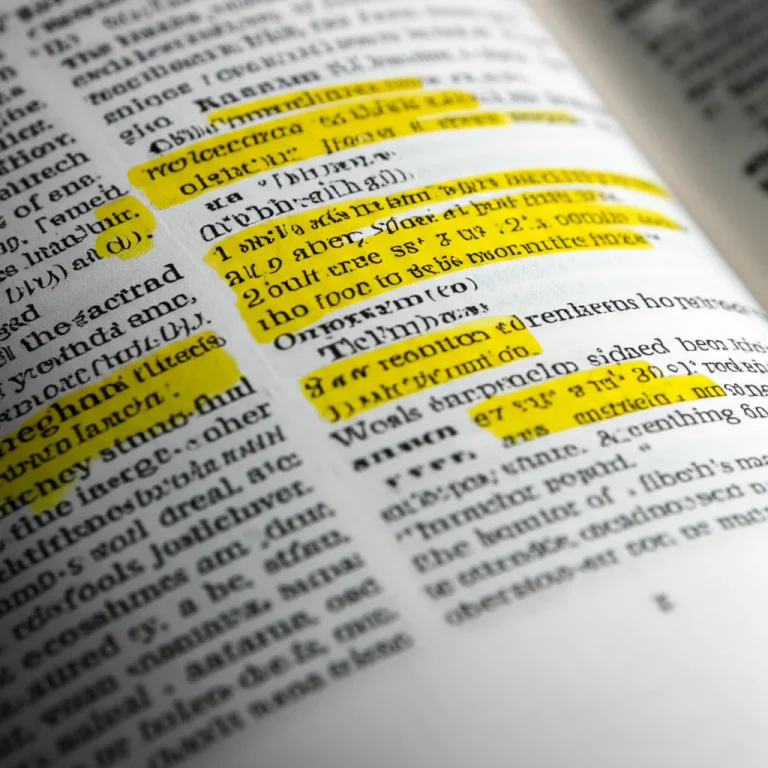Support our educational content for free when you purchase through links on our site. Learn more
How to Write a Book Review or Summary [2023]
Are you an avid reader with a passion for sharing your opinions on the books you read? Or are you a student who has been assigned a book review or summary? Regardless, writing a book review or summary can sometimes seem daunting. But fear not, our team at Book Summary Review™ has got you covered!
In this article, we will cover everything you need to know about writing a book review or summary. From the basics of what a review or summary is, to tips and tricks on how to write a top-notch one. So, grab your favorite book, a notepad and pen, and let's dive in!
What is a Book Review?
A book review is a critical evaluation of a book that provides a brief summary of the book's content, analysis of the themes and characters, and the reviewer's personal opinion or recommendation. A book review is different from a book report, which merely summarizes the book's content without any analysis or evaluation.
Key elements of a book review:
-
Introduction: The introduction should provide the reader with the book's title, author, and the genre or category it belongs to. It should also inform the reader of the reviewer's personal experience with the book, such as how they discovered it and their initial thoughts.
-
Summary: The summary should briefly outline the book's plot, major themes, and characters. Ensure that the summary is concise and to the point.
-
Analysis: The analysis is the most crucial element of a book review. It should focus on the reviewer's critical evaluation of the book's content. This includes discussing the book's strengths and weaknesses, themes, plot, character development, message, and relevance.
-
Conclusion: The conclusion should summarize the reviewer's assessment of the book, its overall impact, and provide a final verdict, recommendation, or rating.
Writing a book review: Tips and Tricks
-
Read the book thoroughly and take notes as you read. This will help you remember the key themes, plot points, and characters.
-
Begin writing your review outline by focusing on the book's summary.
-
When writing your analysis, consider discussing the book's message, the author's writing style, and any relevant historical or cultural contexts.
-
Use quotes or references from the book to support your analysis of the themes or characters.
-
Consider your audience – Who will be reading your review? Will it be an academic audience, or general readers?
-
Avoid using spoilers and be cautious about giving away too much of the plot.
-
Finally, proofread your work for any errors in grammar, spelling, punctuation, and formatting.
How to Write a Book Summary?
A book summary is a brief overview of a book's content without analysis or evaluation. It is a condensed version of the book and should provide the reader with the book's central idea and main points.
Key elements of a book summary:
-
Introduction: The introduction should provide the reader with the book's title, author, and the genre or category it belongs to.
-
Summary: The summary should briefly outline the book's plot, major themes, and characters. It should be concise and to the point.
-
Conclusion: The conclusion should summarize the central idea of the book and any final thoughts or impressions.
Writing a book summary: Tips and Tricks
-
Read the book thoroughly and take notes as you read. This will help you remember the key themes, plot points, and characters.
-
Begin writing your summary outline by focusing on the book's major themes and their relation to the central idea.
-
Use quotes or references from the book to support your summary of the themes or characters.
-
Consider your audience – Who will be reading your summary? Will it be an academic audience, or general readers?
-
Be objective and avoid introducing any analysis or evaluation of the book's content.
-
Finally, proofread your work for any errors in grammar, spelling, punctuation, and formatting.
Becoming a Book Reviewer: Three Short Examples
Becoming a book reviewer can be a rewarding and fascinating journey. Here are three short examples of reviewers who have made a name for themselves in the world of literature:
Example 1: Michiko Kakutani
Michiko Kakutani is a Pulitzer Prize-winning book critic who has been the chief book critic for The New York Times since 1983. Known for her sharp and insightful reviews, Kakutani has written extensively on a wide variety of genres and authors. She is a respected figure in the world of literature and her reviews often shape the public's perception of a book's quality.
Example 2: Oprah Winfrey
Oprah Winfrey is a media mogul, actress, and philanthropist who has made a name for herself as a book reviewer. Her TV show, Oprah's Book Club, is responsible for bringing many books into the mainstream and has made her a powerful force in the publishing industry. Winfrey's reviews often focus on books that have impacted her personally and are often reflections of her own life experiences.
Example 3: Goodreads Community
Goodreads is a social media platform for book lovers. The community has over 90 million members who share their passion for reading by reviewing books, rating them and creating reading lists. Goodreads reviews can range from the extensive to the short and sweet, but they all offer valuable insights into the books.
Developing an Assessment: Before You Write
Before you start writing a book review or summary, consider the following factors:
1. The Purpose
What is the purpose of the review or summary? Is it for academic or personal purposes? Is it to recommend the book to others, or to provide a critical assessment of its content?
2. The Audience
Who will be reading the review or summary? Will they be academics, general readers, or specific groups with particular interests?
3. The Book
What is the book's genre, themes, and subject matter? What are the author's central ideas, stylistic choices, and intended message?
4. The Criteria
What criteria will you use to evaluate the book's content? Will you be looking at its literary merit, historical context, or cultural relevance?
5. The Timing
What is the timeframe for writing the review or summary? Consider the time available for reading the book, taking notes, and drafting and revising the review.
Writing the Review or Summary
Now that you have assessed the book and considered your purpose, audience, criteria, and timing, it's time to start writing your review or summary. Here are some tips to consider:
1. Be Concise
Ensure that your review or summary is concise and to the point. Avoid using unnecessary words or language. Remember, brevity is the soul of wit.
2. Be Specific
Use specific examples from the book to support your analysis or summary. This will provide the reader with a clearer understanding of the book's content and message.
3. Be Honest
Provide an honest evaluation of the book's strengths and weaknesses. This will make your review or summary more credible and trustworthy.
4. Be Critical
A review or summary should not just summarize the book's content but also offer a critical evaluation of its message, themes, characters, and writing style.
5. Be Creative
Don't be afraid to be creative with your review or summary. Inject some personality and style into your writing to make it more engaging and captivating.
Quick Tips and Facts
-
Always read the book thoroughly before writing a review or summary.
-
Use quotes sparingly and ensure that they are relevant to your analysis.
-
When writing a summary, stick to the central ideas and main points of the book.
-
Consider the author's intended audience and intended message when evaluating the book's content.
-
Avoid using spoilers or giving away too much of the plot.
-
Proofread your work for any errors in grammar, spelling, punctuation, and formatting.
FAQ
What are the four parts of a book review?
The four parts of a book review are the introduction, summary, analysis, and conclusion.
What should a summary include in a book review?
A summary should include brief and concise outlines of the book's central idea, major themes, and characters. It should not include any critical evaluation or analysis.
How to write a book summary?
To write a book summary, read the book thoroughly and take note of the central ideas, themes, and characters. Begin writing your summary outline by focusing on the main points of the book. Use quotes or references from the book to support your summary, and finally, proofread your work for any errors.
In Review
Writing a book review or summary may seem daunting at first, but with a little bit of practice and the tips and tricks provided in this article, you will be on your way to writing compelling and insightful reviews or summaries in no time.
Remember to read the book thoroughly, consider your purpose, audience, criteria, and timing, and be creative, concise, specific, honest, and critical in your writing. And most importantly, have fun with it!
Now, go forth and read those books!
Works Consulted
-
Purdue University Writing Lab: Book Reviews. (https://owl.purdue.edu/owl/general_writing/common_writing_assignments/book_reviews.html)
-
Scholastic: How to Write a Book Review. (https://www.scholastic.com/teachers/articles/teaching-content/how-write-book-review/)
-
Goodreads. (https://www.goodreads.com/)





